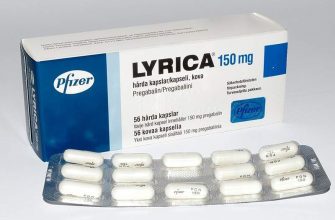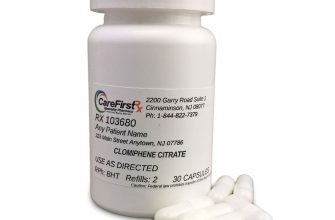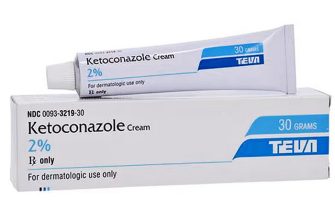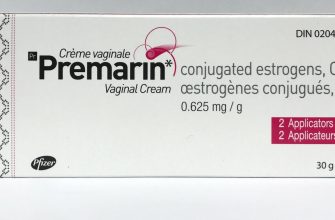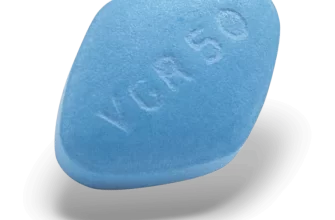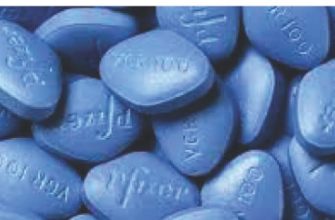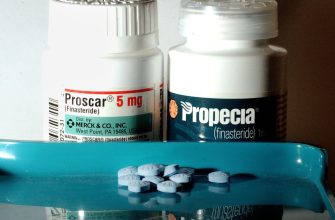Addressing the connection between Accutane and eating disorders requires careful attention to both physical and psychological aspects. Accutane, primarily used to treat severe acne, has been linked to various mental health conditions, including anxiety and depression. These conditions can exacerbate or trigger disordered eating patterns in some individuals.
Research indicates that individuals with a history of mental health issues are at a higher risk of developing eating disorders while on Accutane. Clinicians should monitor patients closely for signs of these conditions, particularly during the initial months of treatment. Regular check-ins can help identify early warning signs and facilitate timely intervention.
For patients already struggling with eating disorders, it is crucial to approach Accutane treatment with caution. Collaborating with a multidisciplinary team, including dermatologists and mental health professionals, allows for a comprehensive treatment plan that prioritizes the patient’s overall well-being. This approach ensures that while addressing acne, we also remain vigilant about the patient’s mental health.
- Accutane and Eating Disorders
- Understanding the Connection Between Accutane and Eating Disorders
- Awareness of Risk Factors
- Support Systems
- The Psychological Impact of Accutane Treatment on Patients
- Monitoring Mental Health
- Developing Coping Strategies
- Identifying Risk Factors for Eating Disorders in Accutane Users
- Age and Gender Considerations
- History of Mental Health Issues
- Effects of Accutane on Body Image and Self-Perception
- Positive Outcomes
- Potential Risks
- Nutrition Recommendations for Patients on Accutane
- Incorporate Healthy Fats
- Prioritize Nutrient-dense Foods
- Integration of Mental Health Support in Accutane Treatment Plans
- Collaboration with Mental Health Professionals
- Patient Education and Resources
- Long-Term Consequences of Eating Disorders in Accutane Users
- Increased Risk of Mood Disorders
- Skin and Nutritional Health
Accutane and Eating Disorders
Patients using Accutane should be aware of its potential connection to eating disorders. Monitoring mental health during treatment is crucial. Speak with a healthcare provider if you experience any changes in mood, appetite, or body image.
- Consult a mental health professional before starting Accutane, especially if there’s a history of eating disorders.
- Maintain open communication with the prescribing doctor about any psychological concerns that arise during treatment.
- Consider a support system, such as friends, family, or counseling, to discuss feelings related to body image and eating habits.
Recognize symptoms of eating disorders, including:
- Extreme dietary restrictions or excessive exercise.
- Constantly comparing self to others regarding appearance.
- Withdrawal from social activities centered around food.
If any of these signs occur, seek help immediately. Treatment programs tailored for those with eating disorders can provide support while managing the impact of Accutane.
Regular check-ins with healthcare professionals can help address both skin and mental health needs. A collaborative approach ensures complete well-being throughout the treatment process.
Understanding the Connection Between Accutane and Eating Disorders
Consider monitoring mental health closely while using Accutane. Some users report an increase in anxiety and depression, which can contribute to eating disorders. It’s essential to maintain open communication with healthcare providers about any emotional changes.
Awareness of Risk Factors
Recognize that individuals with a history of body image concerns may be more susceptible. Accutane can alter skin texture and appearance, leading to heightened self-scrutiny. Those predisposed to eating disorders should approach treatment with caution and discuss risks with a medical professional.
Support Systems
Establish a robust support network. Friends and family can provide encouragement and monitor behaviors. Professional support from therapists specializing in eating disorders can also be beneficial during Accutane treatment, ensuring psychological well-being remains a priority.
Regular check-ins with a healthcare provider help assess both physical and mental health aspects. Early intervention in the case of distress or disordered eating patterns can make a significant difference in overall outcomes.
The Psychological Impact of Accutane Treatment on Patients
Patients using Accutane often experience significant psychological changes. Many individuals report increased levels of anxiety, mood fluctuations, and depression during treatment. This may stem from the potent effects of the medication on hormone levels, which can influence emotional well-being.
Recognizing potential psychological side effects is crucial. Regular check-ins with healthcare providers can help monitor mental health. A supportive network that includes family, friends, and mental health professionals can provide essential encouragement throughout the treatment.
Monitoring Mental Health
Implementing structured mental health evaluations during Accutane treatment creates an opportunity to address issues early. Patients should keep a journal to track mood changes, triggers, and emotional responses. This practice can offer insights into patterns and help healthcare providers adjust treatment plans as needed.
Developing Coping Strategies
Employing coping strategies plays a significant role in managing emotional well-being. Patients can benefit from mindfulness techniques, cognitive behavioral therapy, and regular physical activity. Engaging in hobbies and maintaining social interactions can also help alleviate feelings of isolation that may arise during treatment.
| Strategy | Description |
|---|---|
| Mindfulness | Techniques such as meditation can reduce anxiety and improve emotional regulation. |
| Cognitive Behavioral Therapy | Therapy focused on changing negative thought patterns can enhance mood and stress management. |
| Physical Activity | Regular exercise boosts endorphins and helps combat depressive symptoms. |
| Social Support | Engaging with friends and family mitigates feelings of loneliness and encourages open conversations about feelings. |
Staying informed about potential psychological impacts empowers patients to seek help when needed. Open communication with healthcare providers ensures that any concerns are promptly addressed, allowing for a more comfortable treatment experience.
Identifying Risk Factors for Eating Disorders in Accutane Users
Monitor the mental health of patients using Accutane closely. Studies indicate a higher incidence of anxiety and depression among these users, which can predispose them to eating disorders. Clinicians should routinely assess emotional well-being and encourage open discussions about mental health.
Age and Gender Considerations
Recognize that adolescents and young adults are particularly at risk. This demographic often experiences body image issues intensified by acne treatment. Gender also plays a role, with young women experiencing higher rates of eating disorders. Tailor support and resources to address these specific groups effectively.
History of Mental Health Issues
Evaluate any previous history of eating disorders or mental health problems. Individuals with a past struggle in these areas are more susceptible to renewed challenges during Accutane treatment. Early intervention and targeted counseling can mitigate these risks. Engage with mental health professionals as needed to create a supportive care plan.
Effects of Accutane on Body Image and Self-Perception
Accutane significantly impacts body image and self-perception, particularly among adolescents and young adults. Users often report enhanced self-esteem as their skin clears, leading to improved social interactions and a more positive self-view. However, these changes can vary widely among individuals.
Positive Outcomes
- Clearer skin can boost confidence, allowing individuals to engage more freely in social situations.
- Improved appearance may lead to increased opportunities in personal relationships and professional settings.
- Patients often express relief from the previous emotional toll caused by acne, resulting in a stronger sense of self-worth.
Potential Risks
- Some users experience an increased focus on physical appearance, which may trigger or exacerbate existing body image issues.
- Side effects, such as dryness and changes in skin texture, could lead to dissatisfaction, creating unrealistic standards of beauty.
- For individuals with a history of eating disorders, Accutane may heighten pre-existing anxieties surrounding body image.
Addressing these effects involves awareness and support. Encouragement from healthcare providers, family, and friends can help mitigate negative outcomes. Open discussions about body image and self-acceptance foster a healthier mindset during treatment.
Regular check-ins with a mental health professional can provide guidance to those feeling overwhelmed by their appearance or struggling with body image. This support can become a key factor in ensuring the benefits of Accutane outweigh any potential emotional challenges.
Nutrition Recommendations for Patients on Accutane
Focus on hydration. Drink plenty of water daily to help manage dryness caused by Accutane. Aim for at least eight 8-ounce glasses of water each day. Herbal teas and broths can also contribute to your fluid intake.
Incorporate Healthy Fats
Include sources of omega-3 and omega-6 fatty acids. Fatty fish like salmon and sardines, walnuts, flaxseeds, and chia seeds are excellent options. These fats support skin health and can help with inflammation.
Prioritize Nutrient-dense Foods
Choose whole foods rich in vitamins and minerals. Fresh fruits and vegetables provide antioxidants that combat oxidative stress. Lean proteins such as chicken, turkey, and legumes support skin repair and overall wellness. Whole grains, including quinoa and brown rice, supply energy and stability to your diet.
Avoid high-sugar and high-fat processed foods. These can exacerbate inflammation and hinder your skin’s healing. Instead, opt for balanced meals that combine proteins, healthy fats, and complex carbohydrates.
Integration of Mental Health Support in Accutane Treatment Plans
Incorporate regular mental health assessments for patients undergoing Accutane treatment. Schedule these evaluations at the start of the regimen, and follow up at regular intervals. This proactive approach enables healthcare providers to identify potential emotional and psychological challenges early on.
Encourage open communication between patients and their healthcare team. Create a safe space where individuals can share their feelings about treatment and any emerging mental health concerns. This builds trust and ensures that patients feel comfortable discussing their experiences.
Collaboration with Mental Health Professionals
Integrate mental health specialists into the treatment plan. Collaborate with psychologists or therapists who can provide targeted support. Implement joint sessions with dermatologists and mental health providers to address treatment-related issues comprehensively.
Patient Education and Resources
Provide educational materials about the potential emotional side effects of Accutane. Include information on anxiety, depression, and other mood changes. Offer resources for mental health support, such as hotlines or local services, empowering patients to seek help when needed.
Long-Term Consequences of Eating Disorders in Accutane Users
Accutane can have significant implications for those with a history of eating disorders. Research indicates that individuals who have struggled with conditions like anorexia or bulimia are at a higher risk for severe side effects when using Accutane. These individuals may experience exacerbation of mood disorders, leading to increased anxiety and depression.
Increased Risk of Mood Disorders
Studies have shown that Accutane users with eating disorders often report heightened emotional instability. Serotonin levels, which regulate mood, can be affected by both Accutane and poor nutritional habits associated with eating disorders. Patients should monitor their mental health closely and engage healthcare providers to address any emerging concerns.
Skin and Nutritional Health
A history of eating disorders may impede the body’s ability to recover from the skin issues Accutane targets. Malnutrition can impede the healing process and diminish the skin’s response to treatment. A balanced diet tailored to support skin health is necessary while on Accutane. Patients should consult a nutritionist familiar with both skin care and eating disorders to design an appropriate meal plan.
Long-term use of Accutane requires careful monitoring for all users, particularly those with a history of eating disorders. Regular follow-ups with healthcare professionals will help manage physical and mental health effectively.



